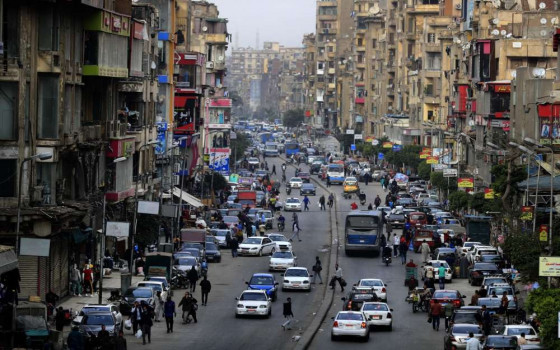
A divided world tries to tackle the problems of a threatened planet during the Climate Summit in Sharm El-Sheikh

- Europe and Arabs
- Friday , 4 November 2022 12:48 PM GMT
Representatives of a divided and in danger world will meet from Sunday for two weeks in Sharm El-Sheikh to discuss issues that threaten the planet with its natural disasters and what is still heading for catastrophic warming.
More than a hundred heads of state and government are expected to arrive on Monday and Tuesday to participate in the “Leaders Summit” during the 27th Conference of the Parties on Climate (COP27), according to the Egyptian organizers, in an atmosphere witnessing several interrelated crises such as the Ukraine war, inflationary pressures and the possibility of a global recession as well as crises Energy, food and biodiversity...
Much is relied on the outcome of the talks, while the world is worried about its future due to climate problems, with deadly floods, heat waves and storms in different parts of the world giving a glimpse of the worst possible scenarios.
The COP27 Climate Conference, which runs from the 6th to the 18th of November, is also dominated by the poor countries' need for money to face future repercussions, even those that are already claiming lives and wreaking havoc on the economy.
The United Nations warned last week that there is currently "a lack of reliable path" to limit global warming to the target set in the Paris climate agreement of 1.5 degrees Celsius.
Although the trajectory of global warming has become better since the start of climate negotiations at the United Nations in 1995, under the current policies, the Earth's temperature is expected to rise by 2.8 degrees Celsius, which is disastrous. The temperature could rise by 2.4 degrees Celsius even if countries honor all their commitments to reduce carbon use under the Paris Agreement.
“There have been fraught stages in the past,” said Alden Meyer, a senior analyst at E3G and a climate expert for 30 years, mentioning other wars, the UN-sponsored negotiation process on the verge of collapse in 2009 and the US withdrawal from the Paris Agreement under Donald Trump.
"But we are in the midst of the perfect storm. A new term has been coined to describe it: a multifaceted crisis (polycrisis)."
Many experts say that what casts a shadow over the negotiations in Egypt for a longer period is not the Russian invasion of Ukraine, but the continuous decline in Sino-US relations, while the two countries contributed in the past to breakthroughs in climate diplomacy, including the Paris Agreement.
- 'Articulated stage' -
During COP26 in Glasgow, the world's two largest economies sidestepped their other thorny differences and issued a joint statement.
However, the visit of US House Speaker Nancy Pelosi to Taiwan last August led to the suspension of communication channels between the two countries on the climate front. The situation has worsened with the administration of US President Joe Biden imposing severe restrictions on the export of advanced technology chips to China.
"We are at a turning point. If the political situation is so bad that the two biggest emitters are not connected, we will not achieve 1.5 degrees Celsius," said Li Shuo, a political analyst with Beijing-based Greenpeace International.
It is expected that US President Joe Biden and his Chinese counterpart Xi Jinping will attend the G20 summit in Bali, days before the negotiations in Egypt are concluded. "If the two leaders meet, this dynamic will affect what happens in Sharm el-Sheikh," he assured me.
- Money matters -
COP27's work will focus on three overlapping priorities: emissions, accountability and money.
The main issue that determines the success of the negotiations is related to the creation of a separate fund for "losses and damages", which is compensation for irreversible climatic damage.
The United States and the European Union, which fear the adoption of an open mechanism for compensation, have been stalling on this issue for years and doubt the need for a separate financial mechanism, but the patience of the affected countries is running out.
"Reaching an agreement on the mechanism of losses and damages will be the measure of COP27's success or failure," said Munir Akram, Pakistan's ambassador to the United Nations and head of the Group of 77 + China, a powerful negotiating bloc that includes more than 130 developing countries.
"The will creates miracles," Akram stressed during an interview with AFP.
Rich countries are also expected to set a timetable for paying $100 billion annually to help developing countries make their economies greener and more resistant to climate change in the future.
This amount should have been paid two years ago and was not fully collected, according to the Organization for Economic Cooperation and Development (it still needs 17 billion).
During COP26 in Glasgow last year, carbon pollution cuts were prioritized through side agreements engineered by the conference host UK, to cut methane emissions, curb deforestation, phase out fossil fuel subsidies and promote the transition to renewables.
Countries agreed to review their carbon reduction pledges annually, not every five years, but a handful of countries did so in 2022.
Efforts to reduce emissions will continue in Sharm el-Sheikh as delegates and observers assess progress on last year's promises.
UN Secretary-General António Guterres will unveil an assessment of the pledges by companies, investors and local authorities to achieve carbon neutrality by mid-century in general.
"The world cannot afford more green-washing or false or belated moves," he said last week.
Source: AFP


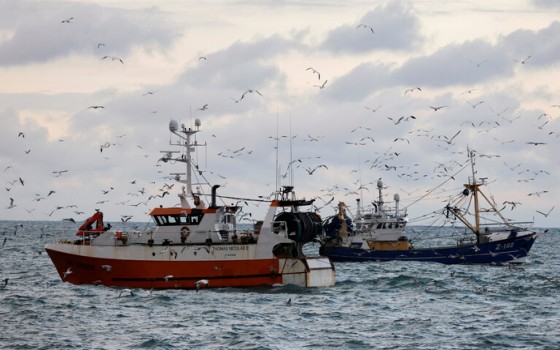

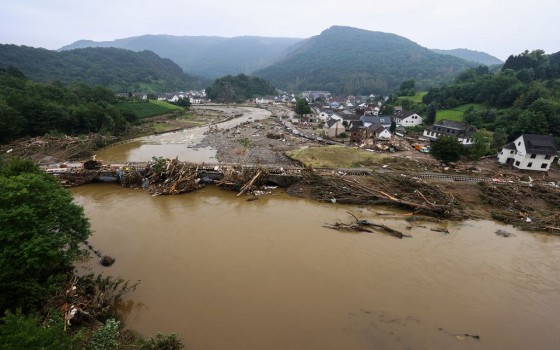
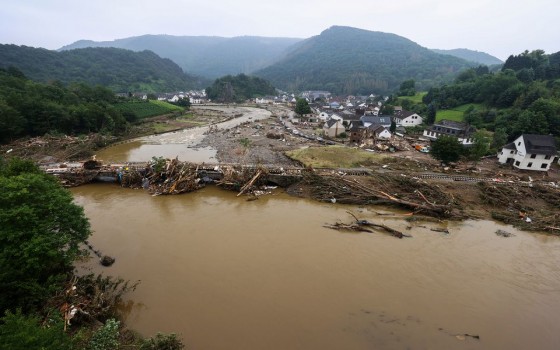


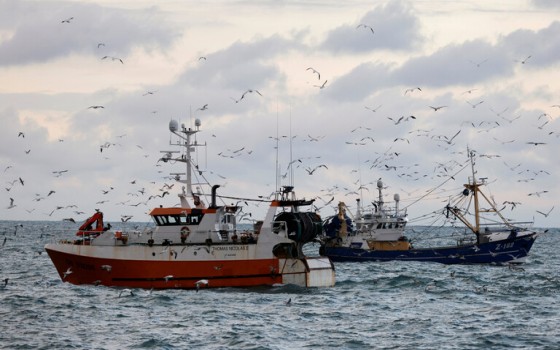



No Comments Found